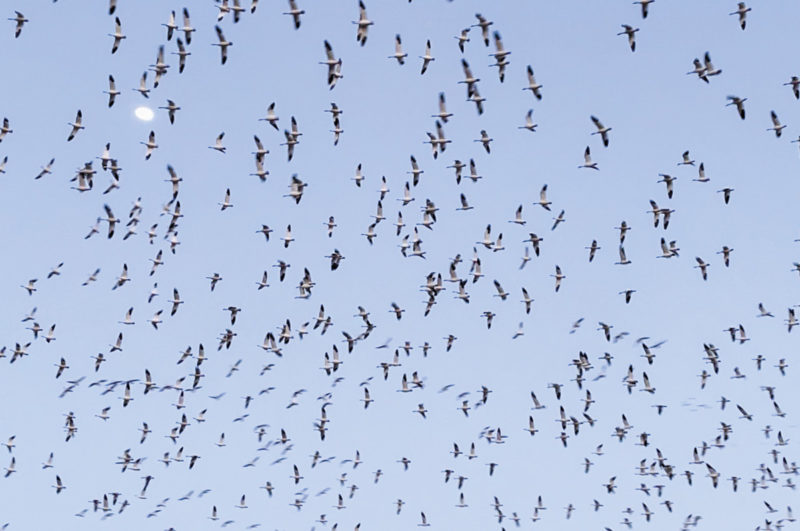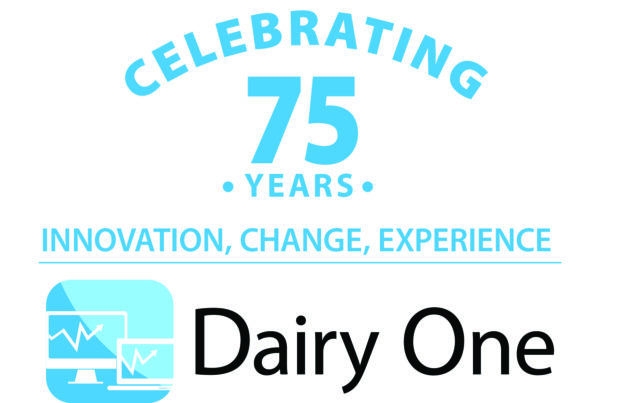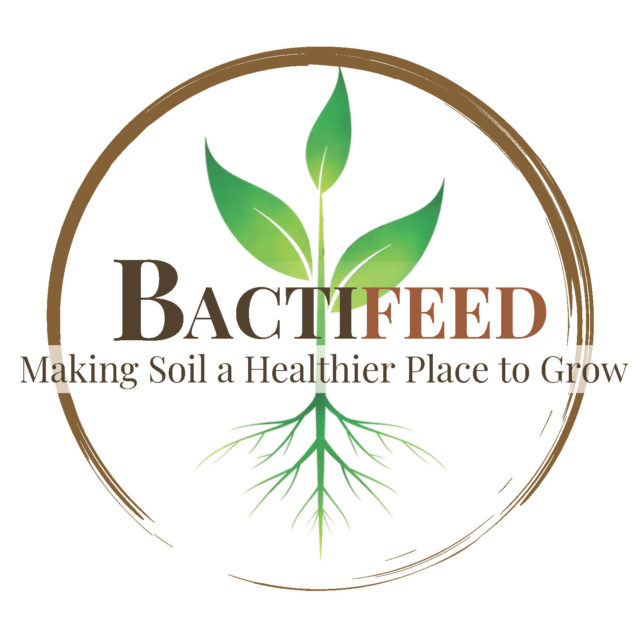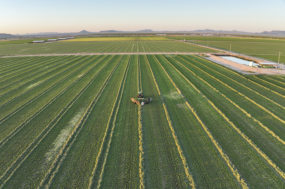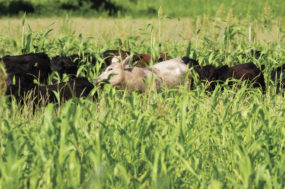The snow geese arrive at the farm, but they do not stay. It’s like clockwork because it is, in fact, clockwork. Their internal clocklike instincts tell the flocks that the lengthening of the days means it's time to return to colder climes. Colder than even here in Idaho. They seek the extremes found in Alaska and Canada to breed and brood. Once there, they will lay their nest and hatch their goslings, glorying in the endless days of a far-north summer.
Our fields are just a stopover on a long-distant flight that takes them 3,000 miles. They come in the thousands for days at a time. You’d know them from their check-mark flight pattern, but you’d also know them by sound. From the ground, the calling flocks are reminiscent of a pack of baying hounds. It’s loud, and if your farm is ultra-appealing to the birds, even deafening.
A flock had settled into a cornfield where our cattle were busy on the corn harvest remnants. A thousand white birds in a field with 30 black cattle. The birds were oblivious to the plight of the domesticated cows who saw these interlopers as both foreigners and competitors for the same resources – corn stubble and any grain that could be gleaned from the combine leftovers.
My kids were fascinated by the geese. For an hour, they watched the birds as they, startled out of the corn, took flight and met up with another flock. The larger flock would then split into parts, with one moving to the next field, one beginning to descend on our field and the other flying into the distance – where you could just see them split again. A choreographed dance as old as the birds’ ancestors and all timed to the bird’s eccentric song.
In another day or two, this flock will move on, and maybe we won’t see any more snow geese for the rest of the winter. Or perhaps another flock will move in, taking its place before continuing the journey north. Either way, by the time the days start to truly warm, the birds will be gone. They will leave our farm to overnight at another farm in Alberta or Saskatchewan, ushering in spring at each stop along their journey.
I’m neither a naturalist nor a biologist, but being a farmer feels like a little bit of both. Before those professions existed, farmers were watching, manipulating, connecting and sharing nature with the wilder things of this world. Most of the time, it feels like modern agriculture has outgrown that gritty connection with the earth. We humans hold dominion over the earth with our tractors, equipment and technology. And then, a flock of geese descends on your field without a "by-your-leave" to disturb your cattle and please your children, and you realize how little control you really have.
